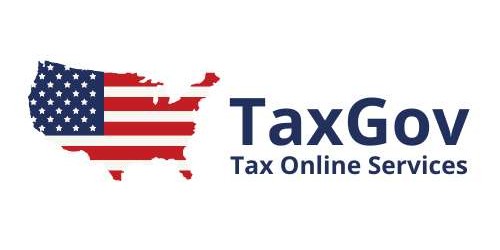What is an ITIN and Why is it Needed?
What is an ITIN and Why is it Needed? An Individual Taxpayer Identification Number (ITIN) is a tax processing number issued by the Internal Revenue Service in the United States. Primarily, it’s intended for individuals who are not eligible to obtain a Social Security Number. The ITIN allows individuals, including undocumented immigrants, to comply with U.S. tax laws and provides a means for them to pay taxes. Although it does not provide legal status or work authorization, possessing an ITIN can be beneficial for building a credit history, applying for a driver’s license in some states, and even purchasing a home. Understanding its advantages helps undocumented immigrants navigate financial systems more effectively.
Eligibility for Obtaining an ITIN
Eligibility for Obtaining an ITIN Many people wonder who is eligible to apply for an ITIN. Essentially, anyone who needs to file a U.S. federal tax return but does not have, or is not eligible to obtain, a Social Security Number must apply for an ITIN. This is particularly relevant for undocumented immigrants who reside in the U.S. Government policies are clear in their distinction between just paying taxes and receiving benefits such as legal residency; an ITIN helps with the former. The process requires careful submission of forms, and applicants should ensure documentation is accurate to prevent unnecessary delays or rejections. Both legal assistance and community resources are available to help guide undocumented immigrants through this complex but crucial process.
Need help getting your ITIN?
We can help you apply for your ITIN quickly and easily. Let our team handle the process for you.
How to Apply for an ITIN
How to Apply for an ITIN The application process for an ITIN can be undertaken in a straightforward manner if all necessary steps and documentation requirements are met. Applicants must fill out and submit form W-7, along with a tax return and original documents proving identity and foreign status. The application can be submitted by mail, via an IRS office, or through a Certifying Acceptance Agent. Many face challenges due to language barriers or confusion with government paperwork, but utilizing certified agents can simplify this experience significantly. Keeping copies of all documents and being prepared for communication from the IRS are recommended to ensure a smooth application process.
How Does an ITIN Help with Credit?
How Does an ITIN Help with Credit? Establishing credit is a critical step for many individuals seeking financial security and opportunities in the U.S. For undocumented immigrants, an ITIN provides a pathway to create and manage credit responsibly. With an ITIN, individuals can obtain credit cards, apply for credit-builder loans, and establish a credit record. Once a credit history is built, it opens doors to more significant financial products and lower interest rates, which contribute to long-term economic stability. This opportunity is pivotal for those aiming to improve their financial standing and participate more fully in the economy.
Common Misconceptions About ITINs
Common Misconceptions About ITINs There are several misconceptions surrounding the use and benefits of an ITIN for undocumented immigrants. Firstly, obtaining an ITIN does not alter an individual’s immigration status or act as a means to secure legal employment in the U.S. Additionally, it neither qualifies the holder for Social Security benefits nor authorizes work. What it does facilitate is the ability to fulfill tax obligations, which can positively influence applications for citizenship or residency by demonstrating compliance with tax laws. However, it’s crucial to dispel these myths to avoid misinformation that could lead to misinterpretations of an individual’s legal standing or options available to them in seeking resident status.
Renewing Your ITIN
Renewing Your ITIN Like many financial documents, an ITIN may require renewal. ITINs not used on a federal tax return for three consecutive years will expire, and instructions for renewal must be followed accordingly. The renewal process involves submitting a new Form W-7 along with valid identification documents. Without proper renewal, the associated tax returns could face delays, incurring penalties or interest. Paying attention to ITIN expiration dates ensures uninterrupted tax filing and compliance, making it essential for undocumented immigrants relying on this number to stay abreast of renewal requirements and procedures.
Benefits of an ITIN Beyond Tax Filing
Benefits of an ITIN Beyond Tax Filing While the primary purpose of an ITIN is for tax reporting, its advantages extend further than many realize. For undocumented immigrants, an ITIN can support the establishment of a financial existence in the U.S. It can be used to open a bank account, increase access to loans, and solidify a credit history, which is indispensable for making larger purchases like cars or homes. In some cases, it can allow individuals to secure a mortgage if coupled with a consistent tax history. Understanding and leveraging these benefits can enhance financial stability and provide opportunities for economic advancement, making it an invaluable tool for individuals navigating life in the U.S. without regular immigration paperwork.
Need help getting your ITIN?
We can help you apply for your ITIN quickly and easily. Let our team handle the process for you.
Using an ITIN as a Pathway to Legal Residency
Using an ITIN as a Pathway to Legal Residency While an ITIN does not grant legal status, consistent tax payment through ITIN can be a beneficial component in future applications for permanent residency or citizenship. Paying taxes demonstrates responsibility and contribution to society, aligning with the requirements of many residency-related processes. Legal authorities might view a regular tax history positively, signaling a commitment to legal avenues of residency acquisition. However, it is essential to combine it with other comprehensive strategies and legal advice to maximize the potential pathways to legal residency.


